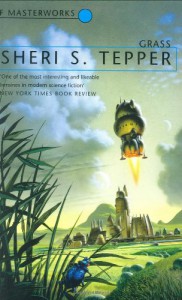 This is probably one of the most unusual first contact stories that I have ever read. For a start, the story begins long after the aliens in question have been first contacted, on a planet long settled by humans.
This is probably one of the most unusual first contact stories that I have ever read. For a start, the story begins long after the aliens in question have been first contacted, on a planet long settled by humans.Grass, a planet covered in swathes of multi-hued grasses with exceedingly long solar cycles and inhabited by strange creatures seemingly analogous to Terran horses, hounds, foxen and vampiric bats. Grass, with it's deeply isolationist policy and deeply entrenched class system, whose ruling classes know and care nothing about what goes on in the rest of the galaxy, the rest of the galaxy being just as ignorant about what goes on there.
But now Grass is becoming of the utmost interest to the rest of the humanity since a veracious and incurable plague is sweeping across the galaxy and only those on Grass appear to remain unaffected. Perhaps there lies a cure but the local aristocrats don't want outsiders there, only reluctantly agreeing to accommodate an ambassador and his retinue, charged with finding out if there is something about the place that makes people immune to the plague and if there might be a cure.
The story centres around the Ambassador Rigo, his wife Marjorie and family as they attempt to carry out their mission and wrestle with their own domestic troubles. But the story also encompasses a large number of other characters and this partly explains why the book is as long as it is. Marjorie soon learns there is a lot more to the indigenous life than they first thought and therein, somewhere, may lie the answer they have been looking for.
There is an important religious aspect to this story too, exploring some similar themes that James Blish explored in A Case of Conscience. Would intelligent alien beings be guilty of the Original Sin and how do you decide what is right and wrong? How should man see himself in God's universe if he is not the only intelligent (and soul baring) species?
This is quite a slow moving story but I still felt engaged throughout most of the book. I would have preferred it to be slightly shorter, with a somewhat more contained cast of characters but besides that, this was an excellent book.
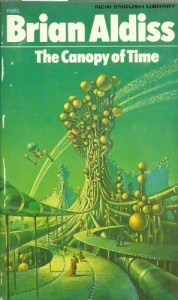 I don't tend to read much of Aldiss' work these days although I've read quite a bit in the past. He has some great classics to his name but I've also encountered some of his more mediocre pieces so I had cooled a bit towards him. I've had this quite early collection sitting on my to-read shelf for some time and it was my involvement in a reading group that caused me to get around to it. I'm glad I did.
I don't tend to read much of Aldiss' work these days although I've read quite a bit in the past. He has some great classics to his name but I've also encountered some of his more mediocre pieces so I had cooled a bit towards him. I've had this quite early collection sitting on my to-read shelf for some time and it was my involvement in a reading group that caused me to get around to it. I'm glad I did.This is a collection of originally unrelated stories that have been retrospectively arranged (and slightly re-worked by the author himself) to form a kind of future history of earth, spanning the eons until the end of the galaxy. Even though the stories themselves are quite varied, it's a framing device that works very well and gave the collection a cohesion that many lack.
And there were some real gems in here too. "Three's a Cloud" was a touching tale of three strangers who stumble upon each other but find themselves inexplicably transformed into some kind of completed unit, a gestalt.
"Who Can Replace a Man?" was a superb story about a time when human kind appears to have finally become extinct, freeing all the service robots from lives of endless toil to attempt to form some kind of new society for themselves. There's definitely a few allegorical messages to be found here as they do very badly at organising themselves, especially when they find out that humans are not quite as extinct as they thought they were...
"Incentive" completely blew me away in how ahead of its time it seemed to be as it took a left turn and slipped into Ligottian horror as human kind is forced to come to terms with a new way of viewing its place in the cosmos.
The following story "Gene Hive" goes in the opposite direction, moving from a horror story to become SF after all as it explores a possibility for Man's next evolutionary leap. This theme is explored again in a different way in the final story of the collection "Visiting Amoeba".
Not all of the stories were top quality but all in all a very strong collection. Highly recommended if you can find it.
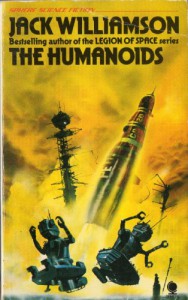 The central conundrum this novel explores is the dichotomy between safety and liberty. At first glance they seem to be mutually exclusive, an inevitable trade-off between one and the other, but is it conceivable that they might ever be reconciled, for humanity to achieve both completely?
The central conundrum this novel explores is the dichotomy between safety and liberty. At first glance they seem to be mutually exclusive, an inevitable trade-off between one and the other, but is it conceivable that they might ever be reconciled, for humanity to achieve both completely?Humanity has spread out across the galaxy but now someone has unleashed a race of supremely powerful robots who's prime directive is to protect all humanity from harm. The are going from planet to planet imposing safety and happiness on all humans they find, whether they like it or not. All potentially harmful physical or intellectual activities are proscribed and if they're not happy, they are sedated with drugs.
There is a bewildering array of psudo sciences explored in this novel too. Not only were these robots made possible by the discovery of a new rhodo-magnetic spectrum of energy but also faster than light travel and bombs exponentially more powerful than conventional nuclear weapons. Some humans have stumbled upon discovering parapsychological powers which they are using to resist the robotic occupation and these seem to be the unconscious manipulation of yet another spectrum of energy; the psychophysical. Could these three types of energies be related in some way to form some grand unifying theory of everything including consciousness itself?
So, this is an action packed novel that is also packed with ideas and revolving around the central question of liberty verses safety. And like all great stories, it doesn't attempt to tell you the answer.
A Glass of Shadow
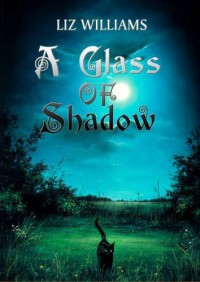 I came to this not really knowing what to expect, with no particular expectations, and came away pleasantly surprised.
I came to this not really knowing what to expect, with no particular expectations, and came away pleasantly surprised. In this collection Liz Williams effortlessly blends themes from Fantasy, SF and Weird Horror in a variety of different ways to form an eclectic array of stories. She is equally comfortable with both female or male protagonists, constructing convincing characters that the reader has no trouble believing in. Her stories often begin enigmatically, drawing you in quick although I didn't always find the endings as satisfying. Her prose is very accessible though not lacking in eloquence when needed.
A theme running throughout many of the stories was that often men were made the victims of women, either in the form of supernatural beings such as succubi, water elementals, vengeful ghosts, etc., or from women in general such as the two stories set on a distant future Mars in which the dominating matriarchal societies have genetically eliminated men out of existence. However I don't detect a feminist agenda here, this is no attempt to turn the tables on men to put the boot on the other foot. I sense she sympathises with men and their weaknesses that are all too easy to exploit.
For me this was a good introduction to Liz Williams but I wonder how representative this is of her other work? I don't doubt I shall read another of her books before long.
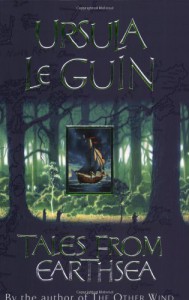 It's been a few years since I read anything by Ursula Le Guin, especially the Earthsea trilogy (never got around to reading Tehanu) so I approached this book with mixed feelings. But I shouldn't have worried, Ursula proved once again she can write great stories.
It's been a few years since I read anything by Ursula Le Guin, especially the Earthsea trilogy (never got around to reading Tehanu) so I approached this book with mixed feelings. But I shouldn't have worried, Ursula proved once again she can write great stories.This set of tales, as well as all being set in Earthsea, also share the theme of magic. All the stories concentrate on characters who are (or are about to become) wizards or witches. Additionally there are feminist concerns here as we see how Roke came to be dominated by Men and what happened when their traditions were challenged.
In addition to the stories, there is an introduction by Ursula herself and an essay about Earthsea itself at the end for those who like that kind of thing.
It was a pleasure visiting the world of Earthsea again and it was a reminder that this is an authors work I should not neglect for long.
 This had been sitting on my shelf to read for some time now, for some reason it never felt like the time. Most of the classic fiction I have read has been in much shorter form and I was quite intimidated by this Gothic epic that I worried might be quite hard work. After completing it, it did feel like a mammoth undertaking but well worth the effort.
This had been sitting on my shelf to read for some time now, for some reason it never felt like the time. Most of the classic fiction I have read has been in much shorter form and I was quite intimidated by this Gothic epic that I worried might be quite hard work. After completing it, it did feel like a mammoth undertaking but well worth the effort. Melmoth the Wanderer, damned for some undiscovered reason and doomed to wander the earth looking for individuals in the pit of despair and anguish in the hope that he can persuade them to take his place before he must submit to an unspecified (and unspeakable) fate. We gradually learn about the Wanderer through the investigations of a man who is his namesake and a descendent from the same family.
There is quite a complex narrative structure in which different stories become embedded within one another as we go back in time and discover some of the history of Wanderer and the kind of suffering of individuals went through before they were confronted by Melmoth and presented with his diabolical bargain.
As the reader, we witness stories of the utmost tragedy as people's lives go from bad to worse and they plumb deeper depths of anguish and despair. Yet it seems that no level of human misery is bad enough to make it appear a less favourable alternative to that which Melmoth offers. All this is set against a time in which Europe is beset by powerful religious institutions and stringent dogma. Corruption and cruelty in these institutions and the hypocrisy of their followers is a theme common to many of the stories contained here. I was also surprised by the amount of humour present, such as Melmoth's dying, miserly uncle and Isidora's priest who's obsessed with fine dining.
Sometimes I felt the story rambled on a bit in places but more often than not I found myself rapt by the the tragic stories as they unfolded and overall, I found this a powerful piece of work. A flawed masterpiece perhaps.
Finch
 Quite different from the other Ambergrisian novel I read (Shriek: An Afterword) in that this is some kind of fusion of dark urban fantasy with hard boiled detective genres although the underlying themes examined are the same. Consequently, while the story stands on its own, much will be lost on the reader unfamiliar with the either of the previous two books written in strange city.
Quite different from the other Ambergrisian novel I read (Shriek: An Afterword) in that this is some kind of fusion of dark urban fantasy with hard boiled detective genres although the underlying themes examined are the same. Consequently, while the story stands on its own, much will be lost on the reader unfamiliar with the either of the previous two books written in strange city.Detective Finch, whilst investigating a peculiar murder, unwittingly finds himself at the focal point of a much larger mystery and is torn between a variety of political and criminal forces whose interests all seem to intersect around his case. The fragile, precarious stability of Ambergris is rapidly upset and poised to take a radical new direction in which Finch's involvement is somehow pivotal.
There is something about Vandermeer's fungal vision of Ambergris that makes the skin crawl, a city awash with multi infectious moulds and penetrating spores that might transform you in unexpected and horrific ways. The Grey Caps themselves, the mysterious beings who have come to govern the city of Ambergris, paint quite a horrifying vision with mysterious motives, sharp pointed teeth teeth and exceedingly difficult to kill no matter if they're plied with bullets or diced with a knife.
Although I enjoyed this book, I can't help finding infuriating the kind of hapless hero that Finch represents, who seems to stumble from one scene to the next with only ever the barest grasp of what is happening. Still, well worth reading and I would definitely read more of Vandermeer's work.
 A somewhat restrained novel from Dick in which he explores what the world might have been like had the Axis won the war alongside themes he is more usually associated such as the nature of reality.
A somewhat restrained novel from Dick in which he explores what the world might have been like had the Axis won the war alongside themes he is more usually associated such as the nature of reality.The story presents fragmented narrative, following an array of disparate but interconnected characters who's actions affect events in not only each other's lives but on a global scale as well.
Germany and Japan are the world's superpowers that divide the world into spheres of influence with America partitioned right down the middle. Some of the characters are individuals highly placed in the regimes and others are the oppressed, conquered people who are trying as best they can to make the best of life. Whilst tensions between the two superpowers are heightening, the lives of the characters are each undergoing transformations in the way they see themselves and their place in society.
An interesting thread running throughout is book within a book, the fictional novel that imagines what would have happened had the allies won the war. A nice touch is that the book imagines a more utopian vision of the world than what we enjoy reminding us that our world is far from ideal.
In this version of history, American industry is reduced to making replicas of traditional American goods of the pre-war era that are now prized collectibles among the Japanese occupiers. Forgeries abound and, fundamentally, Dick is concerned here with exploring the difference between the real and the fake. Does any difference really exist outside of our minds? And if this is true, how much difference is there between this alternate society and ours, outside of our state of mind?
All in all, a very good book and I can see why this is the most highly regarded of Dick's work in literary circles.
 Wow, what a bleak, horrific universe that Barron presents in this collection. An array of veiled glimpses into the crawling chaos are collected here with these superbly well written stories.
Wow, what a bleak, horrific universe that Barron presents in this collection. An array of veiled glimpses into the crawling chaos are collected here with these superbly well written stories.There seems to be a strong if somewhat nebulous theme running through his work not too dissimilar from Lovecraft's in that there is a harsh, terrifying universe out there lying just beyond the bounds of our everyday perception but that occasionally people stray beyond that veil of ignorance and find out more than is good for them (and their sanity). This is demonstrated most clearly in stories such as "Mysterium Tremendum" and "The Broadsword". Some distant and lingering descendents of an ancient alien race wants us, to transform us into something quite terrifying, but not so much physically as psychologically. Sometimes this manifests itself in more traditional ways such as satanism and the occult in the stories "Catch Hell" and "Six Six Six". And other times it is only to reveal the depths to which humanity might sink with the unscrupulous underground artist in "Strappado" and a man who gets caught up between some strange cult and the insane vengeance of his ex lover in "--30--".
Stylistically, Barron never tells you too much, painting a picture of scarce, loosely connected details that the reader must read in between, fill in the gaps to complete the terrifying vision as far as they dare. It is all delivered in a rich, evocative prose in which the careful choice of words is just as important as the plot itself.
I found this collection to be of a consistently high standard throughout with no weak entries. If you are a fan of intelligently written horror and have not read Barron before, you will definitely want to read this. If you have read his previous collection "The Imago Sequence and other stories" then you will likely agree with me that Barron has gone on to even greater heights with this collection.
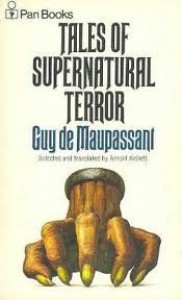 An impressive collection of haunting tales from an author probably best known for his work outside of the genre.
An impressive collection of haunting tales from an author probably best known for his work outside of the genre.These stories explore the fine line between psychological and supernatural horror with the reader left, in most cases, to ponder the question of whether the protagonists have experienced genuine supernatural phenomena or are merely going insane. The best example of this can be seen in "The Horla", probably his most well-known contribution to the genre.
There were many other great tales, the sublime "On the River", the tragic "The Drowned Man", the anguish in "The Dead Girl" and the terrifying "The Wolf". Many of the stories were concerned with the nature of true fear. Often featured a narrative within a narrative as a character relayed some deeply strange and fearful experience they had had. Most of the stories are very short and the prose is spare allowing the reader to breeze through the book in no time.
Not all of the stories I found effective but there is enough quality here for fans of classic horror to enjoy although there are more extensive collections of his contributions to the genre around for the completists out there. Now I just need to perfect my French and read these in their original language for the ultimate Maupassant experience.
The Kraken Wakes
 It was Brian Aldiss that accused John Wyndham of writing "cosy catastrophes" but there is nothing cosy about the catastrophe depicted here.
It was Brian Aldiss that accused John Wyndham of writing "cosy catastrophes" but there is nothing cosy about the catastrophe depicted here.Some form of alien beings arrive from space and settle in our deepest oceans and, even though they cannot exist in the low pressure environment of the surface and we can't exist in their high pressure environment at the bottom of the oceans, it soon becomes clear that the two cannot cohabit the earth and that one of us must go.
I say it becomes clear but as far as humanity is concerned, it takes impossibly long for the penny to drop for all but a few fringe "scare mongerers". In this story, the public seem to be extraordinarily resistant to coming to terms with the true nature of the threat, the full extent of their predicament and the need for urgent action. Not that there seems to be anything that can be done, humanity is on the back foot forced to be strictly reactive to a threat who's precise nature remained a mystery throughout the book.
The tone of the book is depressingly doom laden. The governments, helpless in the face of this unknown threat seem capable of doing no more than soothing the worries of their public and putting a brave face on things as the humanity's domain is encroached upon ever further.
We follow the story through the eyes of husband and wife journalist team as they observe events usually from a distance, but sometimes at the forefront as they unfold and civilization is gradually brought to its knees and begins to unravel. The emphasis for much of this book is on the media reaction the way public perception shifts accordingly.
Personally, I thought the narrative style was somewhat distancing for large parts of the book and it may have benefited from multiple points of view to keep the reader close to the events that were taking place but some of the scenes were very evocative, depicting quite horrific moments when the protagonists happened to be close to the action.
Not my favourite Wyndham novel but certainly has a lot going for it nonetheless.
Cugel's Saga
 Onces again we follow the adventures of Cugel the "Clever" as he he attempts to return once again to his homeland and wreak vengeance on his nemesis Iucounu, the Laughing Magician.
Onces again we follow the adventures of Cugel the "Clever" as he he attempts to return once again to his homeland and wreak vengeance on his nemesis Iucounu, the Laughing Magician.This book is a direct sequel to The Eyes of the Overworld following on immediately from where that book left off. Those who read the previous book when it came out only had 17 years to wait for the sequel to find out what would happen to the almost loveable rogue Cugel.
Cugel, possible one of the greatest characters in the fantasy genre. The tall, bow-legged man of loping gait, who strides from one place to the next always looking to get ahead but invariably barely escaping with the shirt on his back. He oscillates between good fortune to misfortune with alarming regularity. He seems damned if he does, and damned if he doesn't. If he sets out to con or deceive he invariably gets his comeuppance but if he tries to make his way honestly, he becomes the unwitting victim of bizarre local customs or vindictive individuals. Usually, at the end of the day, he hightails it from one place to the next with his life intact but his dignity in tatters, leaving a trail of angry crowds in his wake.
All in all a worthy addition to the Dying Earth saga and I look forward to the last installment.
Tempting Providence And Other Stories
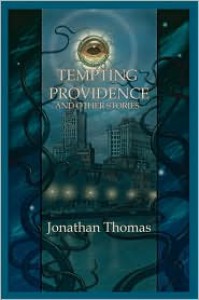 I was looking forward to reading another collection by this author after thoroughly enjoying Midnight Call and Other Stories and was not disappointed. Even more varied than that collection, although not containing as many stories, this showcases his versatility as an author.
I was looking forward to reading another collection by this author after thoroughly enjoying Midnight Call and Other Stories and was not disappointed. Even more varied than that collection, although not containing as many stories, this showcases his versatility as an author.The themes explored in these stories include the dark side of human nature, supernatural encounters, dystopian futures and monstrous deities. He pays a healthy respect for the classics of the field yet injects his stories with originality and thematic twists that place them firmly in the here and now. I don't know of any other author that writes in quite the same way.
In "Power of Midnight", he suggests that the radical shift in cultural direction at the end of the 70's (ushered in by the Regan era) might have been brought about my one's person's listening to a forbidden cursed album, an audio "necronomicon".
In "Tempting Providence" the protagonist is visited by Lovecraft's ghost in a sequence of events that appears to parallel Lovecraft's own story "Haunter of the Dark".
"The Silence in the Copse" brings old Norse legends to life in modern Sweden as an American visitor learns more about their culture than is good for him.
I loved "Into Your Tenement I’ll Creep" in which the tables are turned on a cynically exploitative lothario and "A Different Kind of Heartworm" in which a wife's peculiar discovery about her husband threatens to drive a wedge between them.
A few of the stories I wasn't as keen on, such as "The Salvage Saints" which went on overly long in my opinion and "The Men At the Mound" which just didn't do much for me. But these were exceptions to the rule in otherwise quality collection.
Nightwings
 At first I found that I wasn't particularly engaged by the story but I was expecting science fiction when in fact this is more science fantasy in the Dying Earth tradition. Indeed, it works much more as a fantasy novel than SF and once I had made the mental adjustment to the right mode, I began to enjoy it much more.
At first I found that I wasn't particularly engaged by the story but I was expecting science fiction when in fact this is more science fantasy in the Dying Earth tradition. Indeed, it works much more as a fantasy novel than SF and once I had made the mental adjustment to the right mode, I began to enjoy it much more.The human race has gone well past its peak and is now in the third age in which much of the technological marvels that it attained in the previous age have been forgotten and what is left is a rigidly stratified society that is technologically backward. We follow through the eyes of the wandering protagonist as he passes through a period of intense personal and social upheaval. He moves from one guild to the next as his old perceptions and beliefs are altered by the events in the world around him, the old social structure is torn down and from the ruins a new enlightened culture can emerge.
Robert Silverberg writes well here and that helped sustain my interest in the early part of the book before I had engaged with the story. It's not among my favourite of his novels I've read from this period but still well worth reading, particularly for fans of future fantasy.
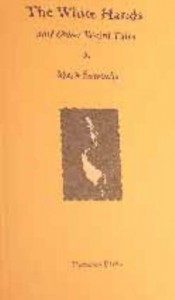 Another one of these modern weird horror writers apparently very highly regarded so I had been on the look out for some of his work for a while now. Then I spotted this Tartarus reprint of his first collection and I jumped at the chance to see what he was like. I was not disappointed.
Another one of these modern weird horror writers apparently very highly regarded so I had been on the look out for some of his work for a while now. Then I spotted this Tartarus reprint of his first collection and I jumped at the chance to see what he was like. I was not disappointed.I breezed through this collection very quickly, not only because it is quite short, but because it was an absolute pleasure to read. This guy really has pinned down the essential essence of the classic weird tale, paying a healthy respect to the classics without seeming pastiche.
White visages, as well as featuring in the title story, are also a recurring theme throughout the book. The white mannequins in "Mannequins in Aspects of Terror", the ghostly white images of the dead in the mirrors in "Apartment 205" and the white paint in which the protagonist paints himself to cover up his skin condition in "Vrolyk".
Also a recurring theme is the self-regarding study of the genre itself; the weird tale. Several of the characters in the stories are writers or artists intent on defining and creating the truly weird and horrific.
"'I believe,' Muswell once said, 'that mental isolation is the essence of weird fiction. Isolation when confronted with disease, with madness, with horror and with death. These are the reverberations of the infinity that torments us.'" (from "The White Hands")
There was not a bad story in the whole collection. Further proof, if proof were needed, of how the weird horror genre is thriving today as never before.
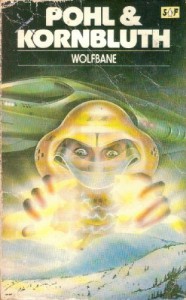 After being utterly blown away the last time I read a collaboration between these authors, The Space Merchants, I had high hopes for this book. However, where that book felt timeless and avoided so many of the pitfalls that befell many of its comtemporaries, this feels like it was very much written in the period in which it was (late 50's), sharing many of the weaknesses so prevalent in SF at that time.
After being utterly blown away the last time I read a collaboration between these authors, The Space Merchants, I had high hopes for this book. However, where that book felt timeless and avoided so many of the pitfalls that befell many of its comtemporaries, this feels like it was very much written in the period in which it was (late 50's), sharing many of the weaknesses so prevalent in SF at that time.There are undoubtedly many interesting ideas touched upon here but the way they were delivered lets it down. At only 160 pages, this is a short novel and it felt rushed. The story doesn't progress, it lurches from one part to the next. The characters are flat and uninteresting. The points the authors were trying to make were garbled and confusing.
I don't mean to sound too negative but this is all about expectations and I know these writers were capable of so much better. Perhaps I'm also becoming less tolerant of poorly written SF now as well?



